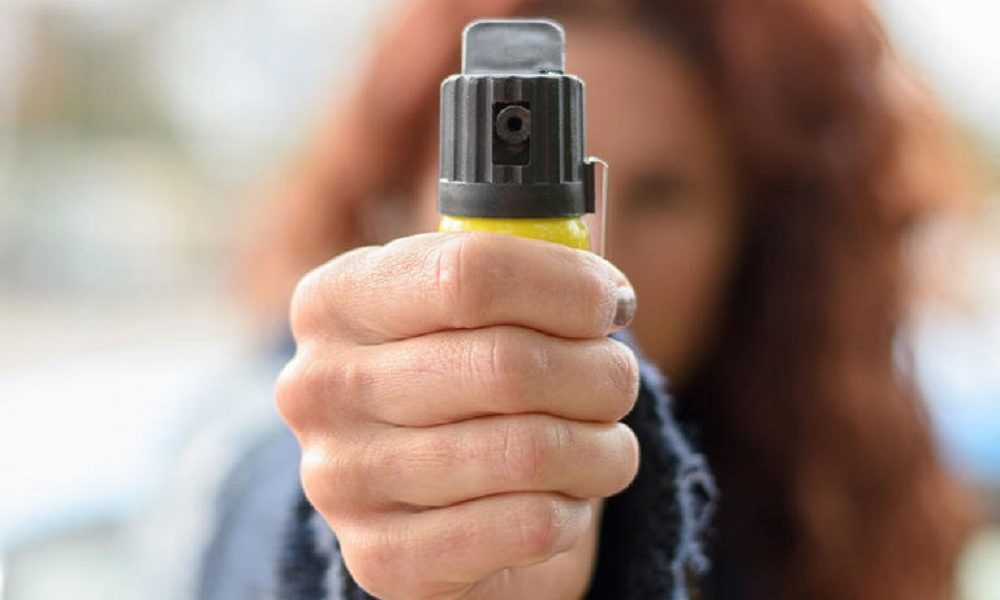
Is Pepper Spray Legal? What You Should Know About State Regulations

Is pepper spray legal? While the answer is generally yes, state regulations can vary widely. Understanding these laws is crucial to ensure you stay on the right side of the law while protecting yourself. This comprehensive guide will explore what you need to know about pepper spray regulations across different states.
General Legality of Pepper Spray
Pepper spray is legal for personal use in all 50 states. However, many states have enacted specific rules regarding who can purchase, carry, and use pepper spray. These regulations often address issues like age restrictions, the size of the canister, and where it can be carried. For example, some states prohibit the sale of pepper spray to minors, while others limit how much pepper spray can be carried.
Is Pepper Spray Legal in Schools?
The legality of pepper spray on school grounds depends on where you live. In Alaska, for instance, you must be at least 21 years old to carry pepper spray on school property. Meanwhile, Maryland prohibits carrying pepper spray in public schools altogether. It’s important to review your state’s specific guidelines if you need to carry pepper spray in or near educational institutions.
Restrictions by Canister Size
In some states, the size of the pepper spray canister is regulated. California limits canisters to 2.5 oz, while states like New York restrict canisters to only 0.75 oz. Other states like Florida and Nevada cap the size at 2 oz. If you’re considering carrying pepper spray, you’ll need to check your state’s canister size restrictions to avoid legal complications.
State-Specific Restrictions on Pepper Spray
Each state has its own set of rules regarding pepper spray. Some, like Arkansas, prohibit pepper spray canisters from exceeding 5.9 oz. Hawaii takes a different approach, limiting pepper spray to just 0.5 oz and banning online sales altogether. Meanwhile, Michigan permits the SABRE RED formula but not the SABRE 3-in-1 formula. These laws can change frequently, so staying informed about your state’s current regulations is essential.
Age Restrictions for Pepper Spray Purchases
Several states have specific age restrictions for purchasing pepper spray. For instance, Delaware and Illinois prohibit the sale of pepper spray to minors unless there is guardian consent. Similarly, in Minnesota, anyone under 16 cannot purchase pepper spray without written permission from a guardian. These laws are designed to ensure that pepper spray is used responsibly, especially by younger individuals.
Licensing and Sales Restrictions
In some states, selling pepper spray requires a license. Massachusetts, for instance, requires both sellers and buyers to have a license. Only licensed firearms dealers can sell pepper spray in the state. In New York, pepper spray must be purchased in person from licensed firearms dealers or pharmacists, and it cannot be shipped to consumers. These restrictions are designed to control access to pepper spray and ensure that it is sold in a regulated environment.
Online Sales Restrictions
While pepper spray is easy to purchase in most states, some states restrict buying it online. For example, Hawaii and Massachusetts prohibit online sales of pepper spray. In New York, shipping pepper spray to the state is illegal, meaning purchases must be made in person. These regulations make it essential to verify the purchasing options in your state before buying pepper spray online.
Felony and Drug Use Restrictions
Many states also restrict the purchase and use of pepper spray based on an individual’s criminal record or drug use history. In California and New Jersey, felons and drug addicts cannot possess or purchase pepper spray. These laws are intended to prevent product misuse, especially when it could be used for criminal purposes.
More in Criminal Attorney
-
New York to Mail Out One-Time Inflation Rebates. Here’s the Eligibility List
New York is preparing to send out its first-ever inflation refund checks, providing financial relief to millions of residents as prices...
October 3, 2025 -
Here’s What Artists Should Know About Copyright & Its Implications
Copyright protects your art from the moment you create it. The second your drawing, painting, sculpture, or photo is fixed in...
September 27, 2025 -
Everything to Know About Vogue America’s New Editor, Chloe Malle
Chloe Malle just stepped into one of the most powerful roles in fashion media: Head of Editorial Content at Vogue America....
September 21, 2025 -
Did Barron Trump Apply to Harvard? Clearing Up the Rumors
Speculation often swirls around public figures, and in recent months Barron Trump’s college choices became part of the conversation. Questions surfaced...
September 20, 2025 -
Can You Be Naked in Texas?
The Texas public nudity law isn’t as simple as “no clothes, you are in trouble.” It all comes down to intent,...
September 13, 2025 -
Why AI Is Now a Necessity, Not a Choice, for Law Firms
Artificial intelligence is no longer a futuristic concept for the legal industry. It is steadily changing how law firms operate, not...
September 13, 2025 -
Waikiki Lifeguard Cleared in Confrontation With Notorious Criminal
On a hot day at Kuhio Beach, veteran lifeguard Christopher Kekaulike Kam stepped in when things got out of control. A...
August 13, 2025 -
Gawking at the Coldplay ‘Kiss Cam’ Affair Is Voyeurism at Its Worst!
Coldplay concerts are meant to be joyful. But during a recent show, a playful kiss cam bit turned into a public...
August 6, 2025 -
Essential Safety and Success Resources for Trans Journalists
Trans journalists go through tough spaces every day. In a field that often tests your limits, knowing where to turn for...
July 30, 2025
















